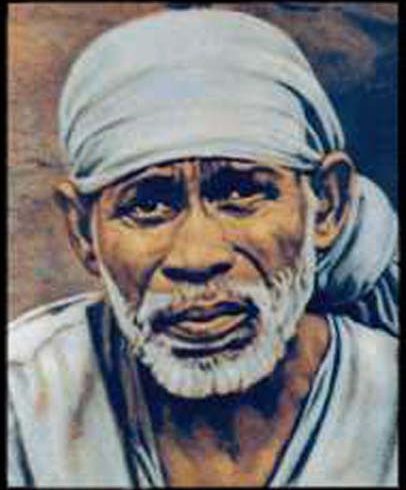Saibaba appears to have understood that the literary forms are only a focus for the underlying truths that are not nearly so susceptible to ethnic and religious pigeonholes.
At one time, pupils at Shirdi were in the habit of approaching Saibaba with books that each found inspiring. The objective was to obtain his blessings in their studies.
On one of these occasions a visitor came empty handed. The others expected the adept to rebuke this man, but instead Saibaba gave him an expansive smile and told him that he was wise – since wisdom could not be assimilated even by reading many scriptures.
True wisdom was concealed in one’s own atman. Even in respect of understanding meditation, one must first understand the meditator. The human psychology is a mass of contradictions and conflicts he stressed – how then can a man assimilate anything from outside? The impressions of such a confused and un-integrated psychology would inevitably be unreliable.
“We have only to see the Self and the rest becomes revealed” he is reported to have said on another occasion. But it is apparent that he considered this to be a rare event. Hence he repeatedly urged some of his pupils, probably the more attentive ones, to: Think always about this question – Who am I?
This stress on vichar (self-enquiry) did not mean any neglect of the teacher, as is sometimes thought by persons intent upon self-remembering. The essential emphasis in Saibaba’s verbal injunctions was the need for rapport with the teacher. The living potency of his baraka (blessing) was the proof here, something stronger than scriptures or dogmas. Pupils found that stray remarks of his caused an impact out of all proportion to a pedantic analysis of his words. One sentence from Saibaba was enough to acutely affect someone’s life for days, weeks, or even months and years on end. His words might sting or they might heal; none could predict what would come.
His words might be in the form of an instruction, something which had to be carried out no matter what if the pupil wished to continue further. This might well involve the elimination of an undesirable personal trait, or the elimination of a new and more desirable one – although this would not be explicit in the order given. It might be something, which appeared to have no connection at all with the “spiritual life” as normally understood. It is this concrete application to life events which distinguishes the real teacher, something quite apart from standard religio-mystical attitudes.
(Source: “Gurus Re-discovered” by Kevin Shepard)


